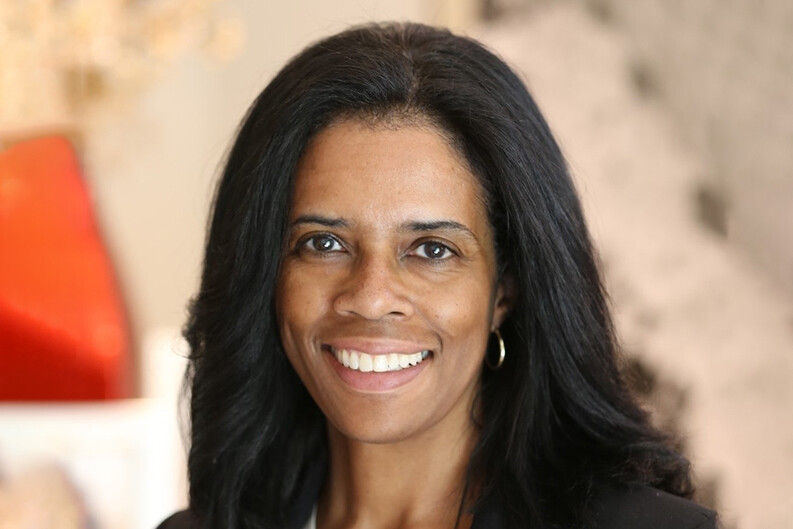Q&A: Margie Adler on Leadership and Public Service

Margie Adler is the Executive Director of the Ludwig Program in Public Sector Leadership4, part of The Tsai Leadership Program5 at Yale Law School.
The Ludwig Program in Public Sector Leadership provides focused educational and professional support to Yale Law students who aspire to nontraditional careers and leadership roles in government, nonprofit, and other industries focused on serving the public. The mission of the Ludwig Program is to ensure that Yale Law students are capable of translating principle into practice; can display a firm grasp of the political, economic, civic, and operational dimensions of policy work; and are well-equipped to engage in ethical reflection and decision-making.
Prior to joining The Tsai Leadership Program team, Adler served as Managing Director of Alumni Relations at the Yale School of Management where she also served on the Council on Anti-Racism and Equity. Adler graduated with a B.A. from Harvard University, completed the General Course program at the London School of Economics and Political Science, and earned a J.D. from Columbia Law School.
Leadership is a complicated and personal concept; how do you define it?
There isn’t one simple definition for leadership, and it can mean many things depending on the person, their role, their life stage, or other circumstance. It involves, among other qualities, effective communication, an openness to learning and change, and the capacity to inspire and contribute to the development of others. There are no born leaders, and leadership abilities are not always immediately apparent. Leadership consists of a combination of characteristics that is learned, that develops over time, and that continually evolves.
What have you learned about leadership in your own career?
When I think about people whom I’ve looked to as leaders or when I am in a leadership role, a common thread is the goal of creating an inclusive and supportive environment. A leader listens to and welcomes a variety of viewpoints. A leader exhibits self-awareness and humility and acknowledges their own biases. A leader who brings a collaborative mindset and positive energy and who creates an atmosphere of generosity and trust can support others in achieving their goals and inspire others to greater potential. In my career, I’ve taken inspiration from leaders at all levels who have demonstrated these qualities, and I’ve endeavored to be such a leader. I have no doubt that I will continue to learn and grow on my own leadership journey in my role with the Ludwig Program.
What made you interested in taking on this new role at Yale Law School?
My last role was at Yale School of Management, where a focus on leadership is ingrained into the culture. I saw there how leadership development programming contributed to making the graduate school experience transformational for students. My background also includes experience in law and in nonprofit leadership, and I share the deep commitment of YLS students and graduates to public service. I’m excited at the prospect of expanding on the leadership development already built into the YLS experience and supporting law students in developing their leadership potential and discovering further opportunities to lead with purpose.
What do you want students to know about The Tsai Leadership Program and the offerings of the Ludwig Program?
YLS students are already leaders. They were flexing their leadership muscles long before they stepped onto campus. The Tsai Leadership Program and the Ludwig Program in Public Sector Leadership will help students continue to explore and develop their leadership abilities. Their experiences in the program, whether through coursework focused on policy considerations or through cocurricular programming are intended to provide the basis for thoughtful-skill development. The offerings will continue to serve them through whatever organization, sector, activity, future career changes, or community their career takes them. Programming will include new courses that will be open to all YLS students; a series of workshops, alumni panels, and guest lectures on topics centered around policy, nonprofit leadership, and citizenship and equality; and the opportunity to travel as a group to meet with alumni and community leaders in a specific area to learn firsthand about their roles and career trajectories. The new leadership programming will complement existing YLS programming in providing students with additional opportunities to help them prepare for their futures as leaders, whether in the legal field or in a nontraditional career path.
What are you most excited about working on over the course of the next year?
Having worked closely with alumni for many years, I’ve seen how important and powerful the alumni-student relationship can be. An essential element of The Tsai Leadership Program will be a robust, customized alumni mentoring program that will connect students with alumni who will offer advice and information based on their own careers and those of their peers and will assist students with identifying and defining career goals. The Ludwig Program in Public Sector Leadership will offer individualized advising to help provide students with information about and access to nontraditional skill building as well as opportunities in public sector and public interest organizations. I’m really looking forward to the implementation of these and other elements of the program, and to meeting more students, learning about what motivates them, and being part of the process that will help them develop into the impactful leaders they desire to be.


